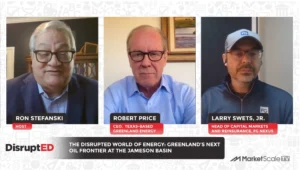The Supreme Court’s Carbon Regulation Decision
With oil and gas prices on everyone’s mind, some good news came to the industry recently in the form of a 6-3 Supreme Court decision. Voting in favor of West Virginia v EPA, the Supreme Court turned the decision of regulation back to Congress. The EPA had been requiring states and companies to restrict their carbon footprints and regulate carbon. This was deemed rule by regulation and not by legislation, and the Supreme Court held that authority of these regulatory measures could be held strictly within Congress and not other agencies.
Tim Synder, Chief Economist for Matador Economics remarks, “This will have a far-reaching effect throughout the rest of the federal government as there has become many practices throughout several different agencies that they’re starting to write regulations and monitor regulations and fine for regulations and put very onerous fees in place to restrict the activity, specifically…against fossil fuels.”
Just a few weeks previously, the SEC had announced a requirement for companies that conduct business with fossil fuel companies to report on the company’s carbon footprint, the carbon footprint of customers, and the carbon footprint of their customer suppliers. This recent Supreme Court ruling may shake the foundation of the SEC’s requirement.
“This is a very onerous requirement on the entire industry and was designed to drive it down, to pull it back from its’ dominant position as 85% of the energy that’s produced in this…country comes from fossil fuels,” says Snyder.
The ruling was a positive step for oil and gas companies in a time of shifting market values and rapidly changing dynamics. Gas prices are also at the forefront of the Biden Administration’s agenda, with President Biden arranging a meeting with seven leaders in the oil and gas industry to meet with Energy Secretary Jennifer Granholm. A meeting that President Biden did not attend and which has had few details on the topic emerge.
Oil and gas industry leaders, however, have called for a change in attitude in the Biden administration. As Synder says, “It’s one of those issues where vilifying ENPs, exploration and production companies throughout the United States causes harm to the industry as a whole.”
In other, more positive news, the percentage of durable goods is increasing better than expected, with a .7% increase, as compared to the previously predicted .1%.
However, GDP Quarter I finished with a final read of -1.6%. Synder says that this remains a time for caution, as Q2 is not yet published and only just beginning. As is understood, two consecutive quarters of a negative GDP typically means a country is facing a recession, and although Q1 finished in the negatives, Q2 remains unseen.








